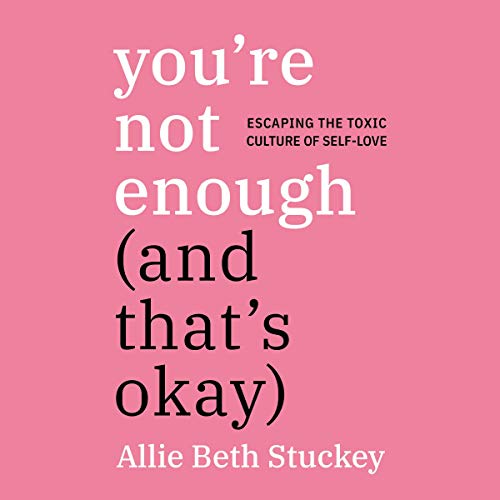![Do More Better: A Practical Guide to Productivity [Book]](https://m.media-amazon.com/images/I/61B8xST39fL._AC_UF1000,1000_QL80_.jpg)
Time management has become a necessary skill in our fast-paced world. Every day seems to fill up faster than the last. Yet, underneath the ever-increasing pace of life, the essentials of food preparation, sleep, personal Bible study and prayer, household chores, and personal hygiene have not diminished. If anything, specific portions of our daily habits, such as prayer and Scripture meditation, have become even more important in light of the million and one distractions throughout our day.
How do we learn time management on the go? Few of us have the time to stop and take stock of life. Although, if slowing down to smell the roses and to remember why we’re walking by the roses in the first place takes too much time to be a reasonable addition to our schedule, maybe stopping to evaluate is exactly what we need. But perhaps you’re not willing to part with any portion of your overly busy schedule just yet and need a quick guide to organizing life. Tim Challies has some help for you!
First, what is your purpose?
As Believers, we have ultimate purpose or reason for living in Christ. Through our knowledge of Him and the empowering strength of the Holy Spirit, we are called to good works as Ephesians 2:8-10 tells us. We perhaps do not always stop to consider the preeminent importance of good works in our lives. As Challies reminds us in the very first chapter, we “ought to emphasize good works at all times and in all areas of life.”
In a productivity-driven culture, good works often fall by the wayside as we become distracted from our purpose. Challies’ redefinition of productivity prepares our minds to think biblically about each aspect of life and all the things we must get done in the context of doing good works unto the Lord.
Productivity is effectively stewarding your gifts, talents, time, energy, and enthusiasm for the good of others and the glory of God.
I found this definition eye-opening and convicting. I admit that I have been guilty of separating my to-do list or calendar from my worship of God. I have struggled to remember that ALL things must be done to the glory of God, including my daily chores, my extra tasks at work, my writing, my preparation for music on Sunday and Bible study during the week, etc. Every thing, any thing, all things must be done for God’s glory and the good of those around me. Plain and simple.
But how do we do that? This is when we must stop and take an inventory of our lives.
At this point, Challies begins to get into the nitty-gritty of deciding what must be a part of our daily lives.
He uses a “productivity sheet” that he created, which can be found on his website HERE, to write out his areas of responsibility. This sheet allows us to physically see all the areas of our lives and the responsibilities within different categories or aspects of life. This made me realize exactly how much I have tried to put on my plate. Simply put, my plate was entirely too full. This sheet may give you the opportunity (and even desire or determination) to set aside those things which might be distracting you from greater purposes such as your family or church, or which you simply do not have the time for. At this point, Challies encourages us to write out a mission for each area of life responsibilities. I somewhat took the time to do this, but also did not find it quite as important for me to have a strictly defined reason for each area of life beyond the ultimate goal of glorifying the Lord.
Following these steps, we get to the practical side of organization. This was the most helpful part for me personally.
Challies recommends specific apps for your calendar, remembering important facts or information, and keeping track of your tasks. I won’t go into detail describing everything here because you simply need to read the book. Now, not everything will be helpful to anyone. I recommend taking the time to read the whole book, allowing yourself to consider and digest all the information. Then, pick and choose the apps/instructions/guides that would be most helpful and practical for your current situation and season in life.
For instance, I am most concerned with ensuring that I don’t forget specific tasks or certain information that I don’t currently need. So, from his suggestions, I downloaded Google Keep to store information and pictures of things I will need to deal with or remember at a later date. Then, I downloaded the Todoist app to keep track of all my recurring tasks and projects and when I need to have them finished. I do not struggle to remember dates or keep track of my calendar (besides, I already have Google Calendar set up), therefore I didn’t dwell on the scheduling information quite as much.
Be aware that this process does take time and will not solve all your problems overnight.
It requires dedication and diligence to continue working to organize life and keep ourselves focused on the goal of glorifying Christ in all we do. Following Challies principles will not mean you will have more time to be lazy (remember, laziness is a sin that we desire to put off!) nor will it mean that your house will always be neat and perfect, your schedule always easily manageable, and your memory pristine. Yet, this book and the principles within are extremely helpful as we seek to live life well.
Let me encourage you with the fruit I’ve seen already in my life as I have worked to use these apps and programs to keep me on track.
- I find household management easier and less stressful.
Specifically with my use of the Todoist app, I have been able to manage my work around the house much better. I have so much information running through my head at any given time between work, reading, writing, and church matters that I often struggle to think of what needs to be done around the house at any given time. Todoist allowed me to write down all the household chores once and schedule them, either as a one-time task or as recurring tasks. I have 1-2 weekly chores for each day, and then have monthly chores scattered throughout the whole month. Now that I’ve gotten myself established with the weekly/monthly tasks, I have begun adding 3, 6, and 12 month tasks as I run into them during my other tasks. This mixed well with what I had already been working on after reading Dana K. White’s books on cleaning and decluttering which I reviewed last year. Although I have not technically gained any more time in my day, I have found that I spend less time worrying about the house and have more time to devote to other things. - I have less excuse to delay my personal time with the Lord.
One of the “other things” I feel like I have more time for is quiet time with the Lord. Not feeling rushed each morning to try to clean an overwhelmingly dirty house has made it easier to set aside that time for the Lord. Now, whether I feel like it or not and whether or not the house is dirty, that time should and must be set aside for the Lord. However, having my household chores scheduled and managed much more reasonably has taken away many of the excuses that I give myself that I need to put off my quiet time for later in the day so I can clean. Making time for the Lord in the morning has also increased my desire to do my work well throughout the day and to do it for Him alone. This in turn means I get more done and do it better, which means I have more time for the Lord again the following day! It is truly a wonderful cycle, but it requires that you put the Lord first, even before your to do list. - I am learning to start from the ground up.
I had so many things on my plate when I started working through the principles in this book. I was attempting to learn/keep up with Spanish on Duolingo, exercise every 1-2 days, read a certain number of pages every day, write a review every day, organize and clean the house every day, keep up with numerous Bible studies (both personal and groups), practice violin more often, learn the guitar, and run a small home business all while making it to work on time, being at church anytime the doors were open, and spending time throughout the week in fellowship with friends and family as usual. All of that brings two words to mind: STRESS and DISASTER.
The principles in this book finally gave me the understanding that I simply can’t do it all. So I’m starting from the ground up. I am currently managing my schedule in a way that means I am doing only what I need to do (work, church, family, house), plus only 2 hobbies: crocheting and blogging (and these only when time allows.) One day, when my current schedule feels comfortable and I am used to the routine I can add other things back in IF I have the time. In the mean time, I am working to manage well all the necessary things on my plate. Once I can do that, I may be ready and able to manage learning a new language or instrument, exercising regularly, or writing reviews more frequently.
In conclusion, I hope you will read this book and find practical help as you evaluate your purpose in living and your goal in each of your responsibilities. Be encouraged as you read by the focus on Christ and the obvious desire Tim Challies has to build us up in the knowledge of Him and in the application of His word to our busy schedules.
Until the next book, have a lovely Thursday!
![]()





